
Degu
Degu
Degu
Degus are becoming increasingly popular as pets in Japan because they are easy to care for and bond well with their owners. Known for their intelligence and curiosity, degus are actually quite shy. This page will explore how cute degus live in the wild and what preparations and precautions to take when keeping one at home.
Degu Basic Infomation
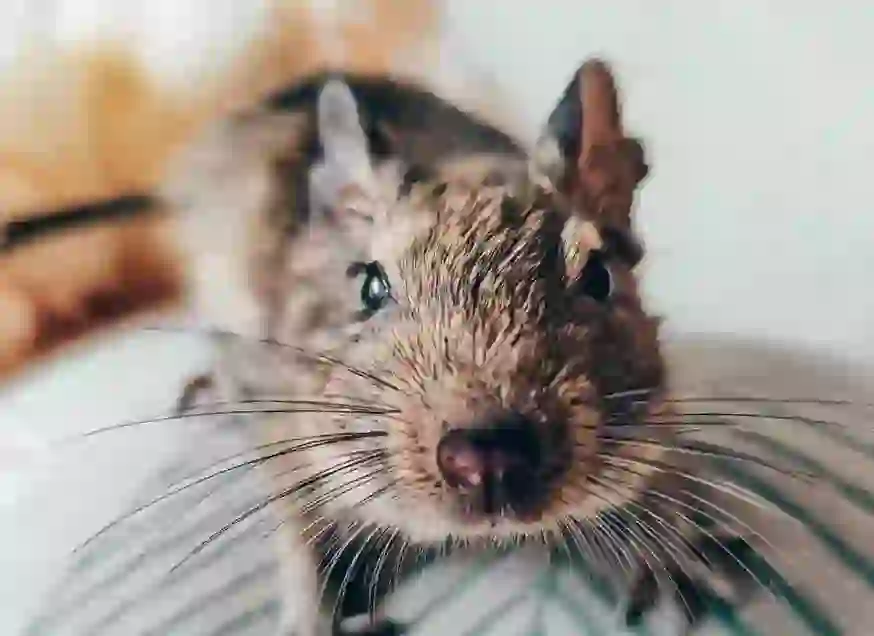
Order: Rodentia, Family: Octodontidae, Genus: Octodon
Native to: Western part of the Andes in Chile
Original habitat: Western side of central Chile
Natural environment: Rocky mountains at altitudes of 1,200 to 2,000 meters
Body length: 12 to 20 cm
Tail length: 10 to 17 cm
Weight: 170 to 300 g
Fur color: The back and head are ochre, while the soles of the feet and the feet themselves are cream-colored.
In Europe, degus have long been familiar as pets. They bond more with humans than hamsters or squirrels and are easier to care for, which has increased their popularity as pets in Japan as well.
Degus can be purchased at pet shops that handle small animals. Look for them in the section where rabbits and hamsters are displayed.
Degu Q&A

I want to keep a degu!
Degus have been popular as pets in Europe for a long time. They bond with humans more than hamsters or squirrels and are easier to care for, which has also made them popular as pets in Japan. You can purchase degus at pet shops that handle small animals. Look for them in the section where rabbits and hamsters are displayed.
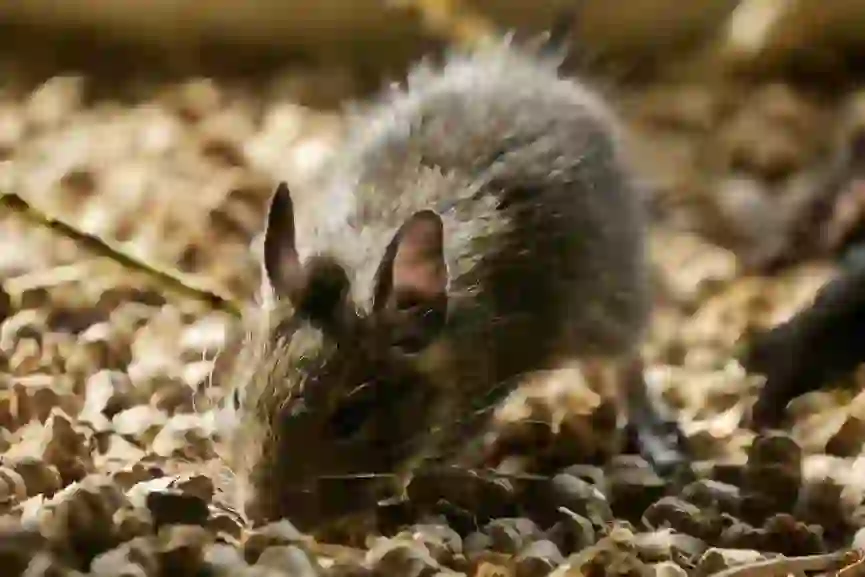
How to identify a healthy degu
1. Tail condition: Choose one with an intact tail, good fur alignment, and a bushy tail end.
2. Teeth: They should not be whitish; a yellowish tinge is normal.
3. Age: For beginners, it is difficult to care for degus younger than three months, so avoid choosing too small an individual.
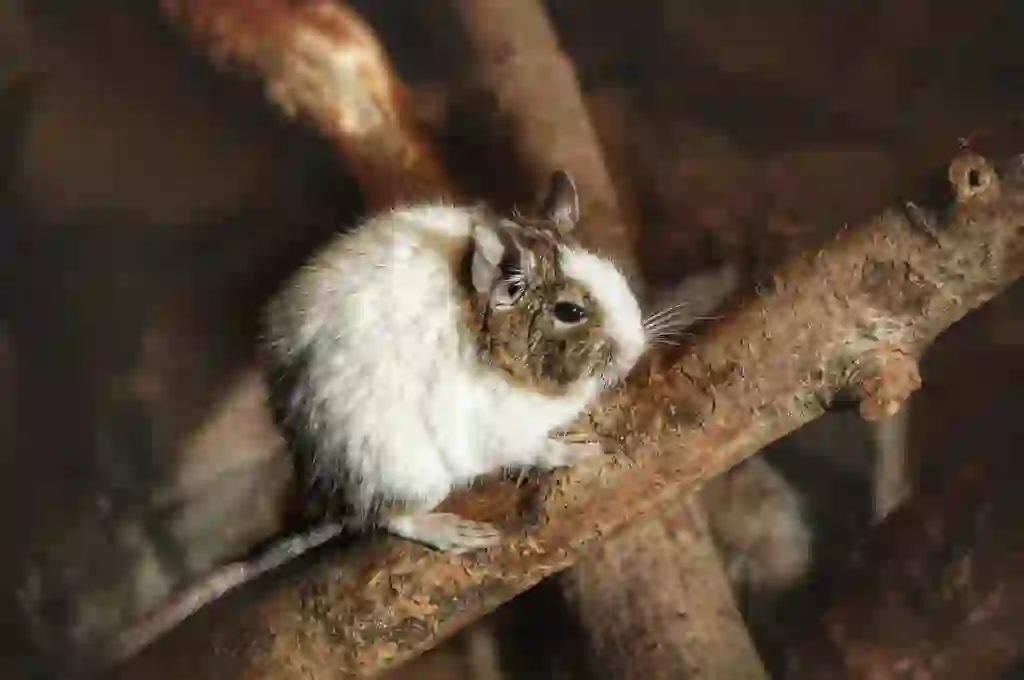
What to prepare before welcoming a degu
Cage, food dish, water bottle, sand bath and sand, bedding, hideout, perches, gnawing wood, exercise wheel, pet heater, flooring material. Degus are very energetic and love to move around, so provide a large enough cage for them to be active. Setting up an exercise wheel, perches, and platforms will make the cage more enjoyable for them. Once your degu gets accustomed to its new environment and you, it will enjoy walking around the room. When letting it out of the cage, make sure there are no hazards around. Also, it is necessary to let degus have a sand bath about three times a week. Sand baths are like a human bath, cleaning off accumulated oil and protecting them from germs and parasites harmful to their health. You can buy bathing sand at pet shops, so be sure to prepare it as well.
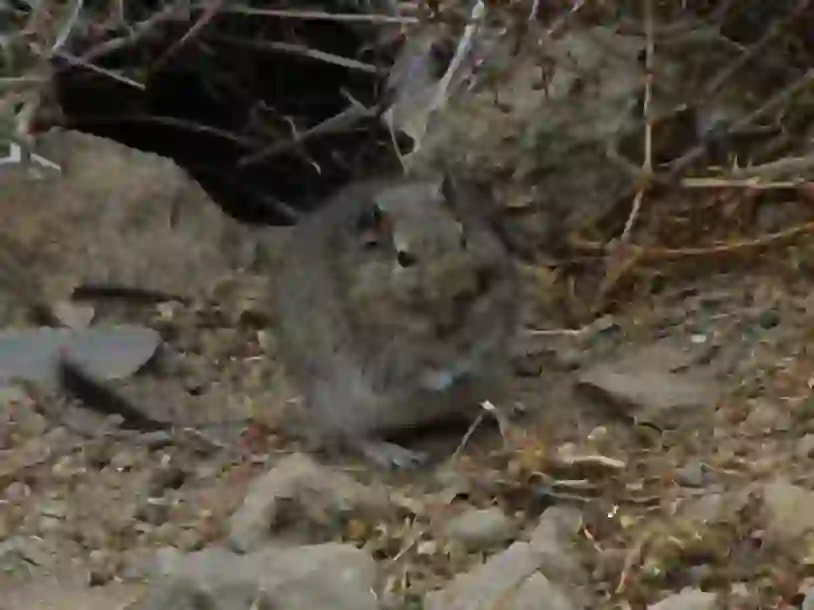
Precautions when welcoming a degu
1. Communicate often: Degus will grow to love their owners more the more you communicate with them. Gently hold them with both hands and talk to them frequently.
2. Start sand baths three times a week: Sand baths in the cage can be messy to clean up. To reduce the burden on you, create a sand bath time out of the cage three to five times a week. Replace the sand once a week.
3. The tail is delicate: Common injuries in degus include 'tail amputation' and 'tail cutting.' If the tail skin tears or cuts, the bone may be exposed. Be careful not to grab or pull the tail.
4. Temperature and humidity control: The ideal cage temperature for degus is about 25°C with around 50% humidity. Check the temperature and humidity frequently to ensure it's neither too hot nor too cold.
5. Cover the cords: Chewing is an instinctive behavior for degus. When letting them play outside the cage, they may chew on electrical cords like those for the TV or refrigerator. This can lead to electrocution, so cover the cords before letting them play.
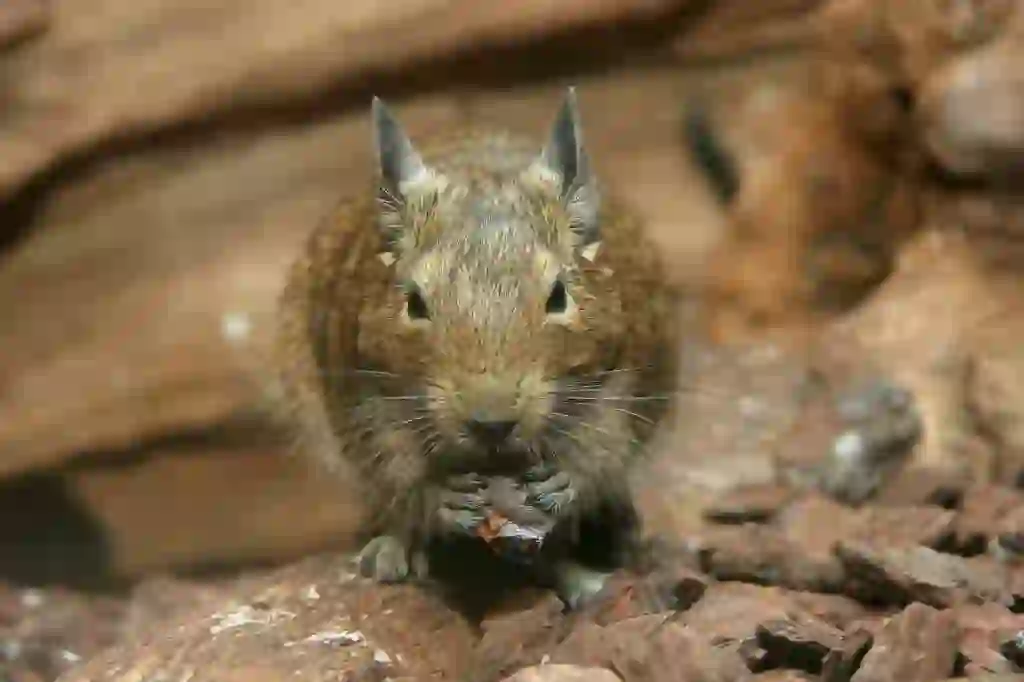
Why is the degu called by its name?
The genus of degus is scientifically known as Octodon. The pattern of their molar teeth resembles the number eight, which in Latin is 'octo,' hence the origin of the name.
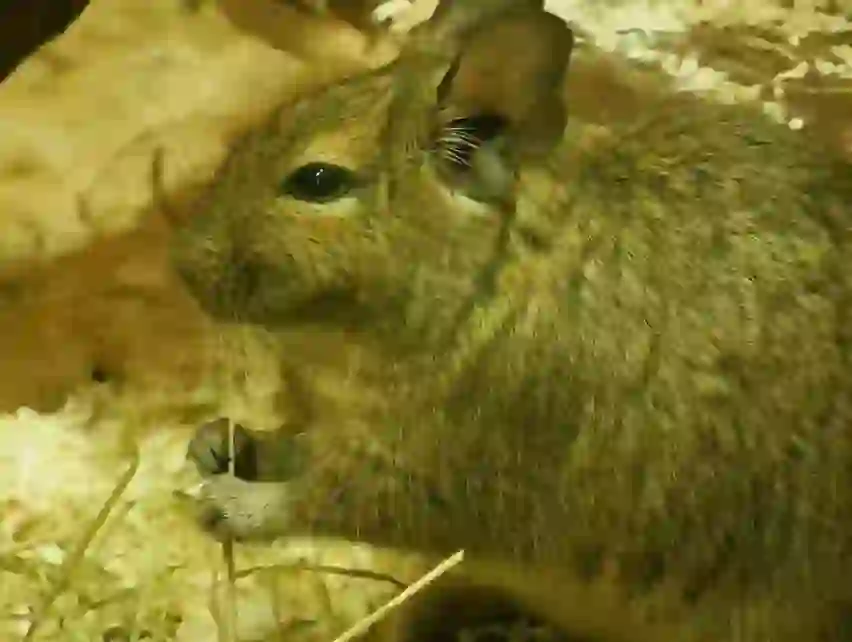
Why do degus live there?
Wild degus live in areas that are warm all year round and dry in the summer. Degus are sensitive to heat and cold, so they live in rocky areas where there are many hiding places.
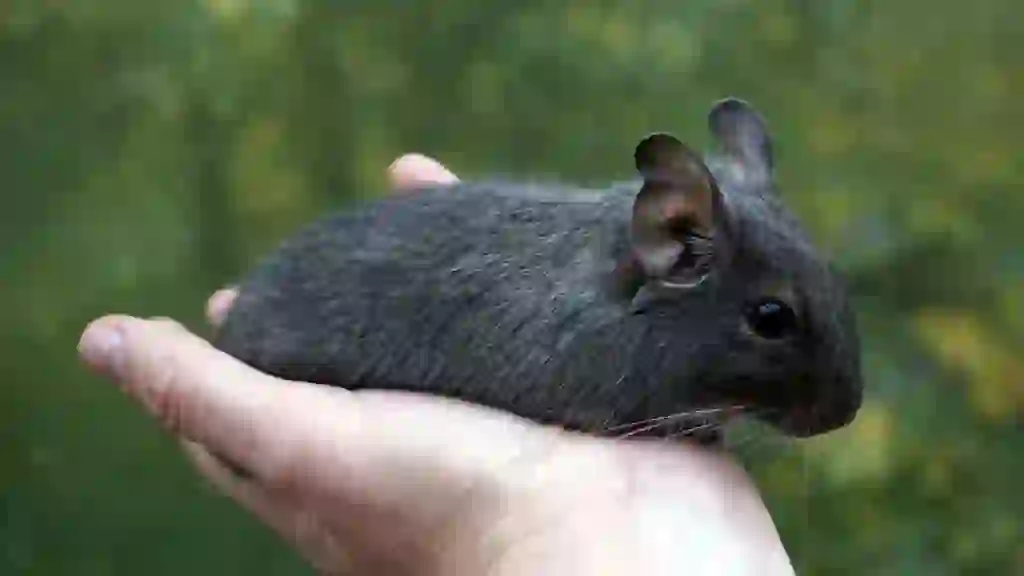
What do degus eat?
Wild degus eat grass, cacti, and tree bark. In the mountainous or rocky areas where they live, there are few rivers or lakes, so they drink water collected on grass from rain. They eat rosette violas, violets, and cacti from the Eriosyce genus. They also eat bark from Chilean pines, Araucaria, Podocarpus nubigena, and other trees in the Podocarpaceae family.
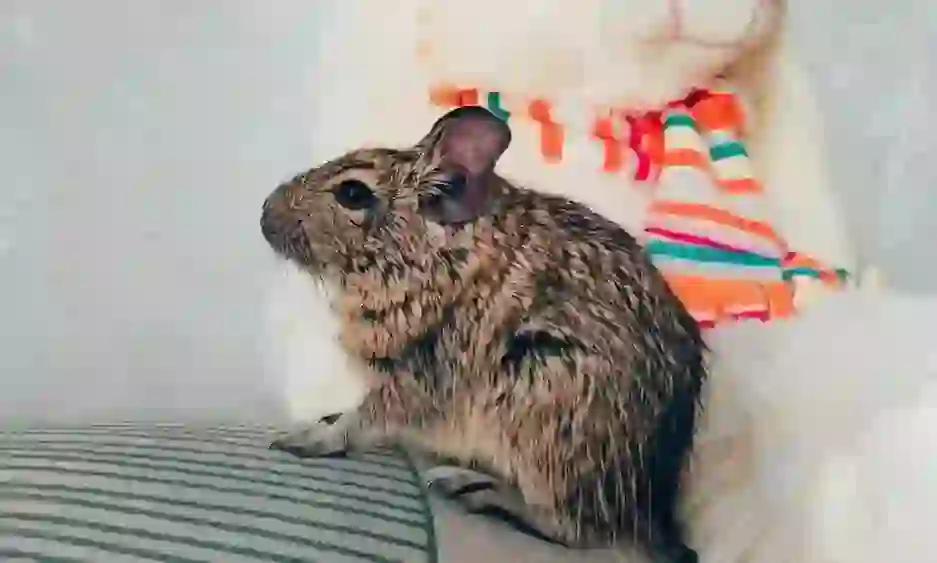
What should be fed to a degu at home?
When keeping a degu at home, the main diet should be hay. Timothy grass from the Poaceae family is available at pet shops. Additionally, it is good to provide specially made pellets for degus to ensure a balanced diet.
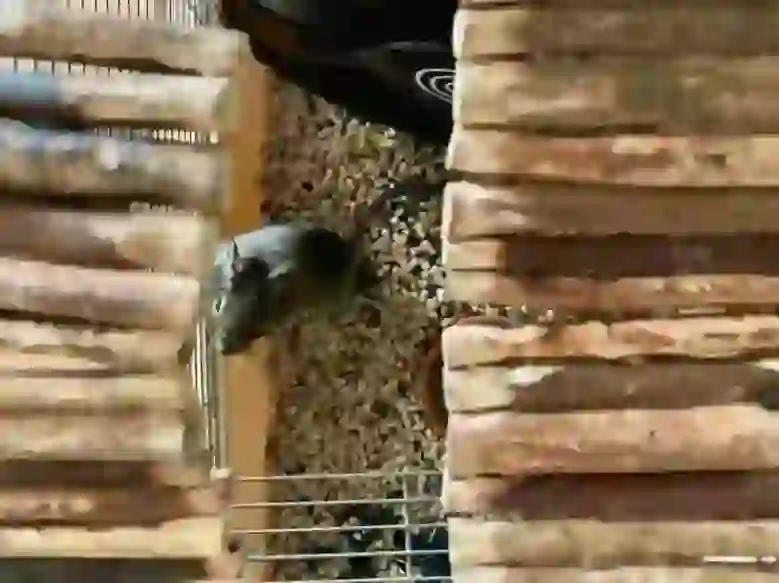
Who are the natural predators of wild degus?
Small degus have many natural predators. Eagles, owls, owlets, and foxes, all of which are carnivorous, are their natural enemies. In the wild, these predators can swoop down from the sky and capture degus. Even when kept as pets, they instinctively fear hands approaching from above, so be careful when handling them.
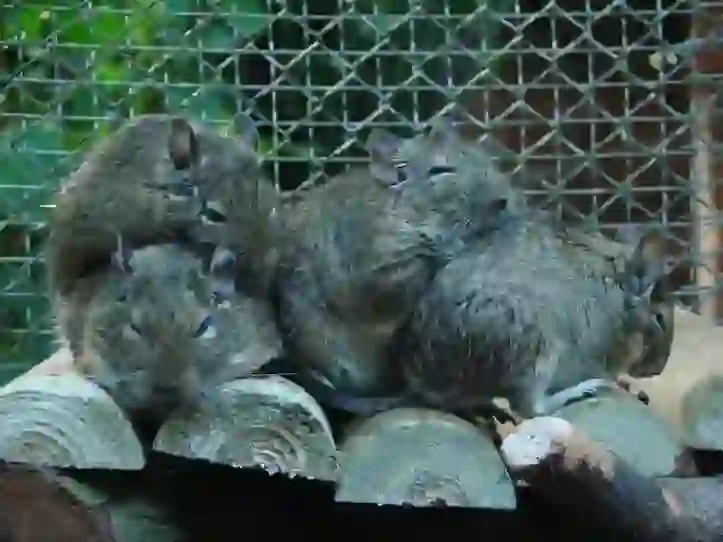
What is the character of a degu?
Degus are intelligent and easily bond with people. They are curious and like to try new things, whether inside or outside their cage. Intelligence and sociability can vary among individuals, some may learn toilet habits or not to bite, while others may not. Additionally, they are very social animals and can get very lonely. If you can only keep one, it is necessary to spend a lot of time interacting with them.
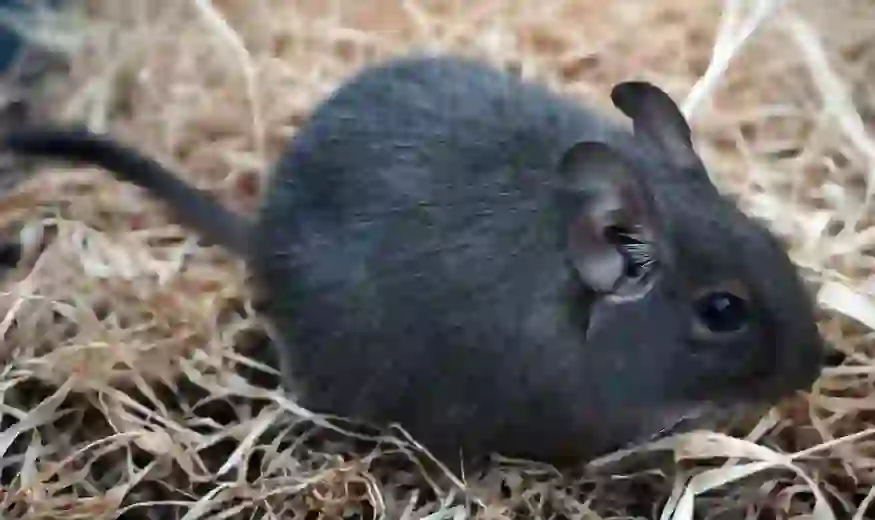
How long do degus live?
Wild degus live about 5 to 8 years, but reaching 4 years old is already considered mature, and those over 8 years are very long-lived. Degus welcomed as pets, if cared for well in a stress-free environment with proper health management, can also live long lives.
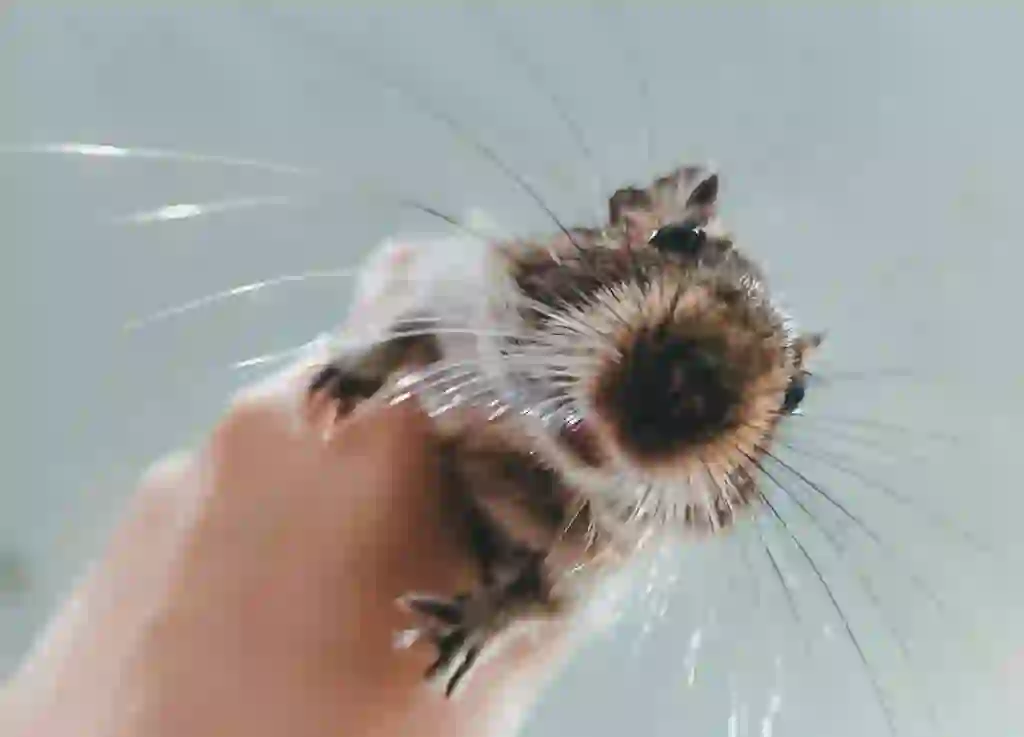
Can degus be trained?
Due to their intelligence, degus can learn their names and respond when called by their owners. If they can respond to their name, they can be called back when let out of the cage to play. Further intelligent individuals can be taught to use the toilet for elimination. Repeatedly teaching them can gradually help them learn to use the toilet.

Do degus vocalize?
Degus live with a family or group of 5 to 10 individuals and use 15 to 20 different types of vocalizations for communication. Happy: 'Peep-peep', 'Chee-chee'; Angry: 'Gee-gee', 'Bee-bee'; Scared: 'John-John'; Painful: 'Zoo', 'Gigi'; Proposing: 'Purr-purr', 'Piko-piko'

Do degus get sick?
Although degus are generally considered resistant to diseases, they can suffer from diabetes and malocclusion. Diabetes can occur if too much dried fruit or fruit is given. Malocclusion is a condition where the upper and lower teeth do not align properly. If the teeth do not align, it becomes difficult to eat, and the misaligned teeth can overgrow.

How can a degu become attached to its owner?
Degus remember and grow fond of the person who takes care of them daily. They love to eat, so feeding time is a good opportunity for bonding. Try handing treats made for small animals directly. Initially, they might be scared in their new environment, so give them about a week to adjust before trying to interact too much.

Would you like to become a part of the 'Animalbook.jp'?
Turn your knowledge into Q&A and share it with the world. ※Publication will be activated after purchase. Let's share information together!
Degu Type of List
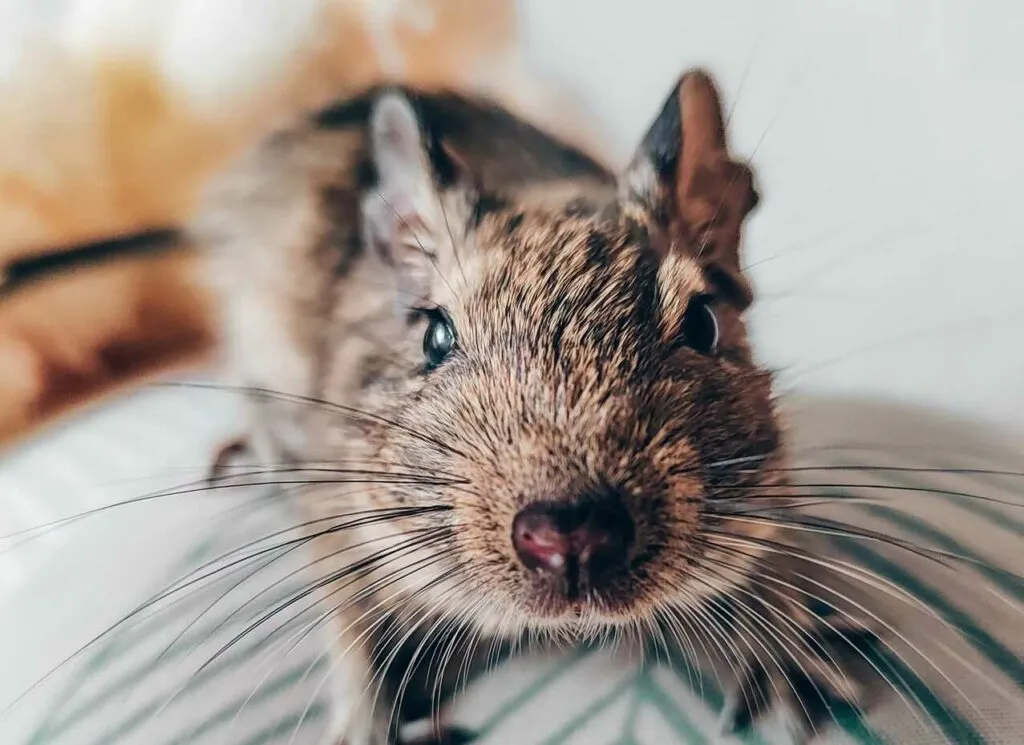
- Agouti (Normal) - fur is dark brown, Price: around 3,000 to 13,000 yen
- Blue - fur is close to gray, lighter than normal, Price: around 4,000 to 15,000 yen
- Piebald (Blue Piebald, Silver Piebald, etc.) - mottled with several fur colors mixed, Price: around 4,000 to 30,000 yen
- Sand - pale yellow fur, rare and hard to obtain, Price: around 30,000 yen
- White - tail, ears, face are white except, rare and hard to obtain, Price: around 30,000 yen
- Cream - light cream-colored fur, rare and hard to obtain, Price: around 30,000 yen
- Yellow - yellow fur color, rarely available, Price: around 20,000 to 60,000 yen
Information
Congratulations! You are the first commenter!

Create Your Favorite List!
Degu
Save the animals you love! Build your own list to quickly revisit your favorites later.

Would you like to leave a comment?
※Please note: This is for the purchase of rights to post comments within the article.
Find Your Favorites!
Our shop offers a unique and attractive selection of goods themed around various animals.
Degu References

- Private Zoo Garden https://pz-garden.stardust31.com/gessi-moku/kapi-kapuro-tenjiku-paka-ka/degu.html#:~:text=巣穴は、地面に,粗食にもよく耐える。
- Wikipedia https://ja.wikipedia.org/wiki/デグー
- Dr.ツルのエキゾチックアニマル情報室 https://exoroom.jp/degu/2019/05/03/seitai/
- ホームセンターを選び倒すメディアとなりのカインズさん https://magazine.cainz.com/article/74367
- TenTen’s room http://tentenroom.blog64.fc2.com/blog-entry-618.html
- はじめてのデグー https://www.degu-lifestyle.com/entry/2018/08/09
- PET RIBBON https://petribbon.com/magazine/pictorial/270
- MOFFME https://moffme.com/article/737
- フクロモモンガ・ハリネズミの専門店ピュアアニマル https://pure-animal.com/exoticanimals/degu-rearing.html#:~:text=・どのような環境で,かじるのが大好きです。
- peco https://peco-japan.com/52625#:~:text=デグーは完全な草食,を食べさせています。
- デグーと共にデグー情報サイト https://degulove.com/degu-yasei-kurashi/#index_id3
Degu Introduction of media used

出典:https://www.pexels.com/ja-jp/photo/11532193/

出典:https://pixabay.com/images/id-3693607/

出典:https://pixabay.com/images/id-4583049/

出典:https://commons.wikimedia.org/wiki/File:Degú.jpg

出典:https://commons.wikimedia.org/wiki/File:Gewöhnlicher_Degu.JPG

enemy
出典:https://pixabay.com/images/id-4833887/
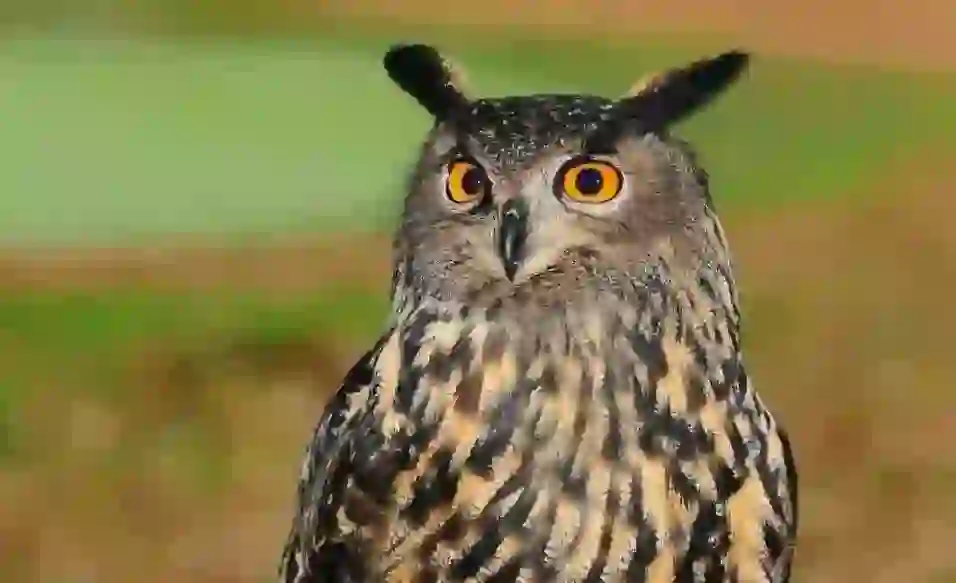
enemy
出典:https://pixabay.com/images/id-2010346/

出典:https://pixabay.com/images/id-1758657/

出典:https://www.pexels.com/ja-jp/photo/11532192/

出典:https://unsplash.com/photos/Z2_Lbf7Dovc

出典:https://pixabay.com/images/id-1758641/

出典:https://www.pexels.com/ja-jp/photo/11532196/

Help Enrich Our Animalbook.jp with Your Media!
We are constantly looking to expand and enrich our Animalbook.jp with amazing photos and videos of animals. If you have any media that you'd like to share, please contribute and help us showcase the beauty and diversity of the animal kingdom. Your submissions will be credited and featured in our encyclopedia, reaching a wide audience of animal lovers.


















